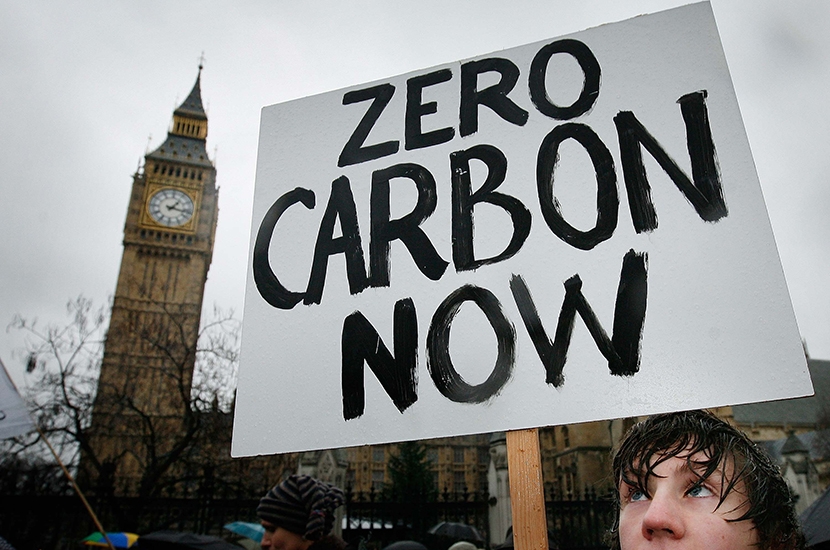On Tuesday, I chaired a session at Policy Exchange addressed by Tony Abbott, the eloquent former prime minister of Australia, now an adviser to the British Board of Trade. Although he acknowledged severe recent difficulties, he declared himself optimistic that free-trading democracies, such as his country and ours, can combine to strengthen rules-based, transparent trade (i.e. the sort of trade China dislikes) across the world. I truly hope he is right. One problem, though, which we barely touched on, is climate change. In the West, this is considered the great global challenge of our time. In developing countries, however, it is often seen as the West’s way of denying them the advantages which made us rich. This week, India did not show up for the 51-country meeting in London to prepare for COP26 in Glasgow, a deliberate snub. India is the world’s third-largest emitter of carbon dioxide, but also the second-largest in population. Its emissions per head rank only 134th in the world. I hope that, on this subject, what we used to call the Third World prevails. Alok Sharma, the COP26 President, describes his conference as the ‘last chance’ to prevent a global temperature rise of 1.5°C over pre-industrial levels. How can he possibly know that? What India can possibly know, however, is the appalling economic disadvantage it will suffer if forced to decarbonise at the rate prescribed by western moralists.
Wokery is probably stronger in our great national museums than in any other set of British institutions. Their nervous directors tend to cite the concerns of their young staff and future recruitment of same to justify ‘decolonisation’. The views of the public whose taxes pay for their museums are almost completely disregarded. Many directors are angry that government ministers are now putting pressure on them to stop ‘re-imagining’ their collections according to the wishes of Black Lives Matter etc. I am surprised they do not turn to their continental counterparts for a remedy against interference. In Germany, France, Italy and so on, museums charge on entry, with standard adult tickets costing €8-15. Except for a brief experiment under the Heath government 50 years ago, charging has always been frowned on here. But if our museum directors are right that wokery will get new generations flocking through the doors, why not charge and let the growing footfall make ministers look stupid? Or are they not as confident of good future box office as they imply?
Is Pope Francis, emerging from bowel surgery, an old man in a hurry? His latest apostolic letter, issued ‘motu proprio’, comes down harshly on the Extraordinary Form — better known as the Tridentine Mass. From now on, he says, no new groups who wish to use that rite should be permitted. New priests should be allowed to celebrate according to that form only with specific authorisation from the Holy See. He also appears to ban the Mass in ‘parochial churches’. This is unnecessarily divisive. Under Popes John Paul II and Benedict XVI, the old rite was permitted so long as it was not used to supplant the new. Its spiritual importance was accepted without it being allowed to threaten the work of Vatican II. Peace broke out. Francis seems close to declaring war.
Ministers privately defending the forthcoming Animal Sentience Bill say it is ‘harmless’. They rightly point out that animal sentience has been implicitly recognised in English law for two centuries; so why not express it, they continue, as a general principle in law? One answer is that animal sentience is not a principle, but a fact. It either exists or it doesn’t, the only dispute being where you draw the line. (Lobsters? Horseflies? Worms?) By declaring it is a principle, you implicitly accept the agenda of those who see animal feelings as the same as human ones, thereby conferring ‘rights’. I see it happening already in relation to racing, whose critics say it is always wrong to use the whip on a racehorse and for horses to suffer injuries in the sport. Soon it will be argued that a saddle and a bit are no better than the yokes and chains of human slaves. In the minds of such people, a horse is equal to a person, but ‘defenceless’. That mental model cannot see that the modern horse is bred, by human choices over several centuries, for certain purposes, and therefore happily fulfils its destiny by following those purposes. By ‘freeing’ the racehorse from racing, you are thus, over time, abolishing it. Something comparable applies to all domestic animals. The Bill empowers a committee to range over government to seek out affronts to animal sentience. Its underlying ideology denies that man can be the friendly master of beast, thereby rendering the beast useless. The poor beast has no ‘natural’ state to which it can return.
Last week, I was walking through a farm a few miles from us. As I stopped to look at the main house, a man and a woman approached. I noticed the man stop in his tracks and then come on. ‘I know you,’ he said. ‘Or I did know you, I think.’ I looked at him, and realised I knew him and, after a brief struggle, remembered his name unprompted. We had not seen one another since I left the village primary school in 1966. True, I had a bit of context, since he was walking near our former school, but still the recognition was mysterious. The 64-year-old man bore no obvious resemblance to my nine-year-old classmate. I recalled no ‘special peculiarities’, as it used to say in passports. Yet something unmistakable had survived in us and between us, which pleased us.
The BBC commentator describing Adam Peaty winning his Olympic gold medal, declared him ‘a mix of Poseidon and Neptune combined’. He might have added that Peaty had swum through a mix of H2O and water.







Comments